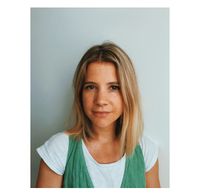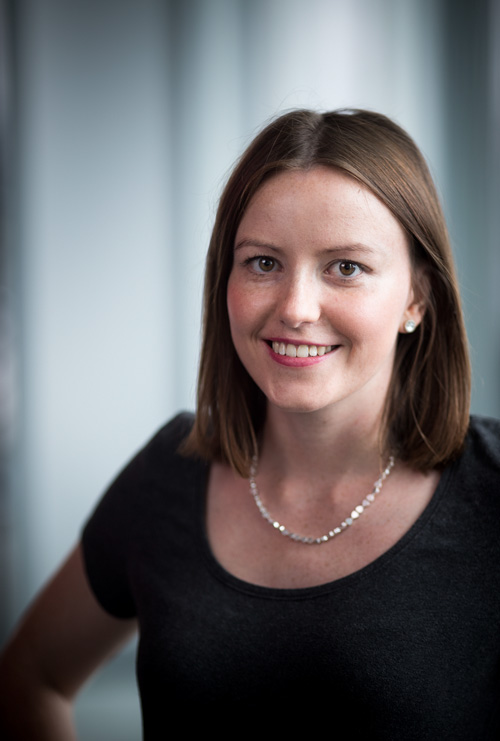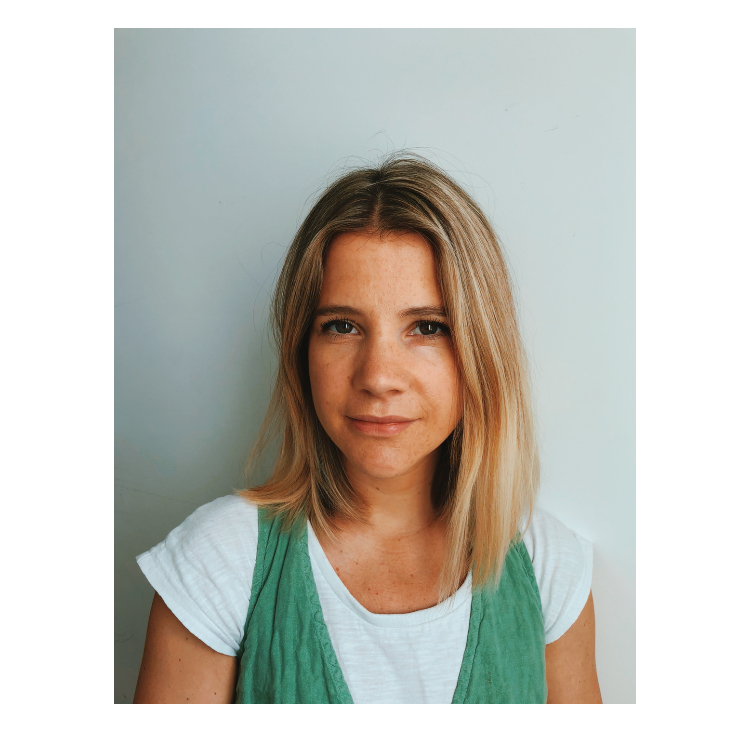How to write a novel by author & commissioning editor Phoebe Morgan
In the second instalment of our Writers Bloc series, we get the inside scoop on how to write a novel from commissioning editor and author, Phoebe Morgan


Celebrity news, beauty, fashion advice, and fascinating features, delivered straight to your inbox!
You are now subscribed
Your newsletter sign-up was successful
In the second instalment of our Writers Bloc series, we get the inside scoop on how to write a novel from commissioning editor and author, Phoebe Morgan
A commissioning editor by day and novelist by night, Phoebe Morgan is the author of The Doll House, published this month, and The Girl Next Door which is released in February 2019, both psychological thrillers. She is 28, and lives in Clapton, East London, with her boyfriend.
Where do you write? Are you one of those novelists who can write anywhere, or do you have a special place where your mind focuses best? I wrote some of The Doll House in the Pret by Leicester Square, some of it in the British Library - which is free and such a beautiful place to spend time - and some of it in my downstairs neighbour's flat in my old building. I used to babysit her son and so after he’d gone to bed I’d sit down with my laptop and beaver away. I can pretty much write anywhere but I do now have a little desk in our bedroom, complete with a sunshine yellow chair. It has to be said, though, a lot of my second novel was written in bed whist looking at my desk... I think as a writer it’s best not to get too hung up on where you write; getting the words down on the page is the most important thing and that can be done almost anywhere. Motivation and persistence are more important than setting. And it turns out Pret will let you nurse a coffee for a really long time.
What inspires you? Do your books tend to start as the kernel of an idea and develop as you start to write, or do you plot meticulously before you dive in? My books tend to start more as the gem of an idea rather than a fully fleshed out plot. The idea for The Doll House came from a real doll house I had as a child, and I love the idea of it being a little microcosm of the real world. So many people play at happy families but almost every family has its own secrets and demons and I was really keen to explore that idea through my characters. I often take inspiration from the world around me – so often when I’m out and about I make little observations and write them down in my iPhone, as you never know what might come in handy in another book. I find the idea of plotting meticulously quite daunting – for me I prefer to begin writing and see where the book takes me, then go back and revisit everything once I’ve got a first draft down. Ideas often come to me as I’m writing, so as long as I have an initial idea of character, I’m happy opening up my laptop and beginning to tell the story. Some authors have terrifying wall charts of coloured post-it notes and Excel sheets detailing each scene of their novel, but I’m very much in awe of those people – it’s just not the way my mind works.

How many drafts do you tend to write, and do you edit as you go or prefer to push through to the end and work through any problems in rewrites? I wrote several drafts of The Doll House, probably even five or six by the end. I’m lucky to have a very hands-on agent who worked with me on redrafting the manuscript once or twice – we ended up cutting out a whole character which felt traumatic at the time but actually was definitely for the best. I prefer to push through to the end of the novel, as I find the blank page intimidating and think it’s always easier to edit once you have something to work with. I’m an editor for my day job too, which probably helps! I don’t know a single author who hasn’t done a rewrite at some point – it really is all par for the course, and it’s often once you start the editing process that things start to feel clearer – you can see which scenes help move the plot forward and which don’t, and you can be brutal in terms of cutting out unnecessary sections or even characters. I think I prefer the editing process to the first drafting process – it’s just such a relief to have that first part done.
Are you a plotter or do you let the story unfold in the writing of it? I let the story unfold, although I often have an idea of how I want the novel to end. This might change as I write, of course, but it’s good to have a rough idea of which direction you want the story to be headed in. Sometimes I find that my characters almost take on a mind of their own – when I was writing The Doll House, the character of Ashley became much more of a key player as I redrafted, and actually a lot of people have since said she is their favourite person in the novel, even though in my mind she’s not strictly the main protagonist. I think it’s important to let your imagination take hold when you’re writing – try not to be too strict with yourself as you can end up limiting yourself if you try to stick rigidly to a plot that wants to take a different direction!
For The Doll House, I wrote a huge amount of backstory for one of my characters and then ended up cutting it all out – but having that knowledge, even just in my head, really helped strengthen the character even though it didn’t make it to the final edit. Sometimes it really is about knowing your characters inside out. They start to feel very real once you’ve spent that amount of hours with them. My least favourite part is the structural edit – so if an agent or editor suggests a major rework it can feel really overwhelming. I remember calling my friend crying once after another round of edits had come in, sitting on my bedroom floor and telling her that I had no idea how I was ever going to re-jig the manuscript. She said: ‘Of course you’ll do it,’ and those very simple words really helped – I just had to trust that I’d get there and eventually, I did.
Celebrity news, beauty, fashion advice, and fascinating features, delivered straight to your inbox!
Have you ever suffered from imposter syndrome? Oh, all the time! I’m not sure it’s something I have ever overcome, I don’t know if anyone does. I think it’s something I’ve just learned to live with and it’s not always a bad thing as I think it keeps you quite grounded. It can feel really strange having a book out in the world, and whilst it’s lovely hearing from readers who have enjoyed the book, I do sometimes feel as though everyone is going to realise I’m some sort of fake and take all of this away from me at any moment. I mainly just try to focus on getting the work done, remind myself of what I have achieved so far, and try not to listen to the negative voice in my head which tells me I’ll never be able to write another book! The writing and publishing community is on the whole such a supportive one, though – I have a group of writer friends and we’ve often talked about imposter syndrome, so I know that everyone suffers from it and that none of us are alone in that. That really helps.
What does your writing schedule look like – are you a believer on the mythical golden hour or tend to work nine to five, or something else entirely? I work full time as a senior commissioning editor so my nine to five is taken up solely with that. I’m lucky as I absolutely love my day job and wouldn’t change it for the world. Therefore, most of my writing gets done in the evenings or the weekends – I’m much better at staying up late than getting up super early, so whilst doing the final edits on The Doll House there were a few very late nights. My boyfriend’s dad once walked into the kitchen to find me on my laptop at 3am, drinking my fifth cup of coffee and with a slightly deranged look in my eye! I try to be quite strict with myself when I’m working on the first draft of a new book, with word counts to hit, as this helps me keep going and prevents me from worrying about making everything perfect in that initial draft. If I take a whole day off work I can get lots more done, but my day job is quite intense so there isn’t much scope for that at the moment.
If you could give one piece of advice to an aspiring writer, what would that be? The key really is persistence. I know so many authors who didn’t get a book deal with their debut – it might be your second book that sells, or even your fifth! If writing is something you really want to do, keep going, and be prepared to accept feedback. Editors always want the best for your book, just as much as you do, and so if you can listen to their comments and keep pushing yourself to make the book the best it can be, the end result will be much stronger. My other piece of advice would be to take chances – put yourself out there in the writing community, say yes to things, be prepared to try new publishers – you never know where it will take you.
